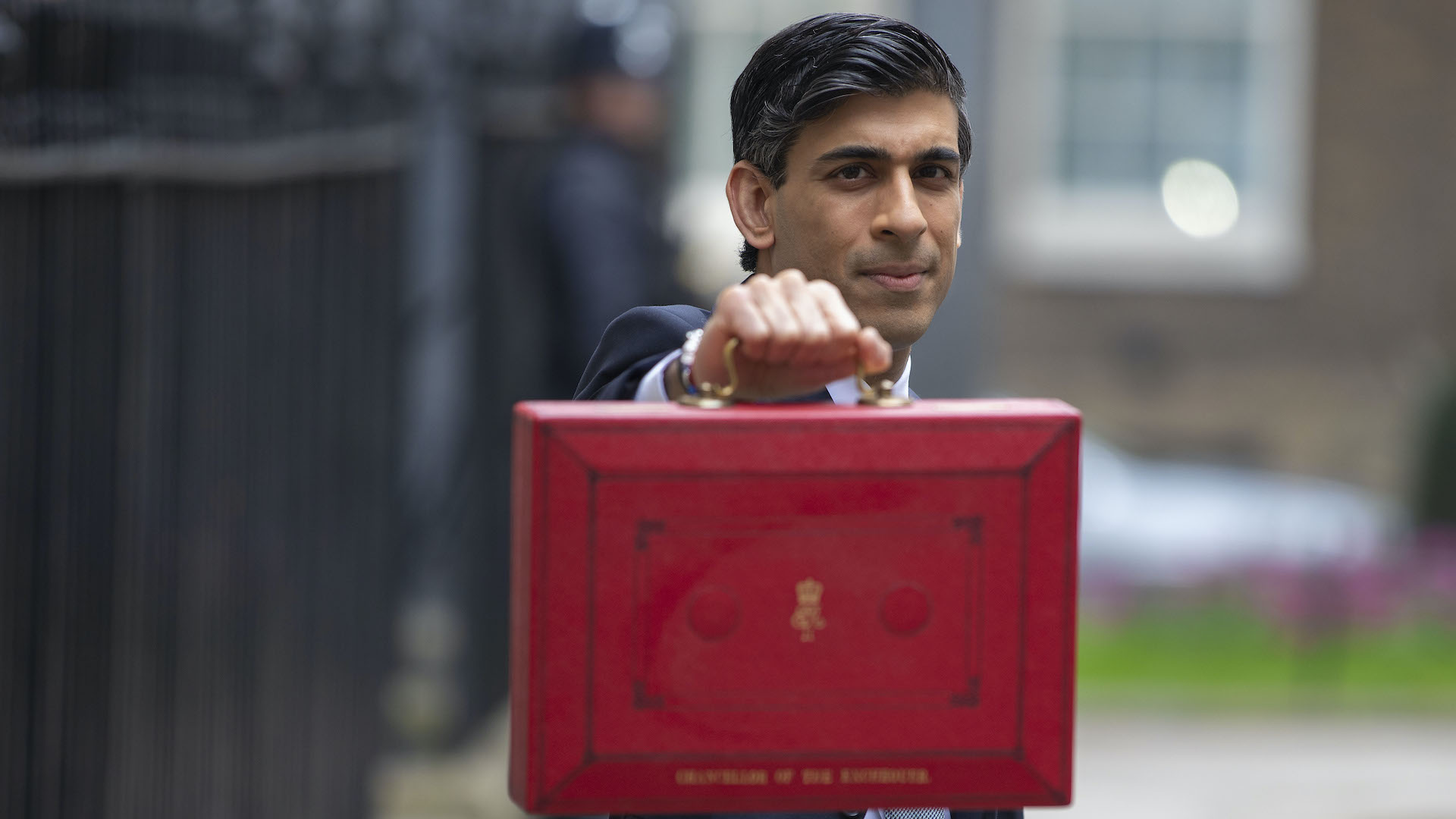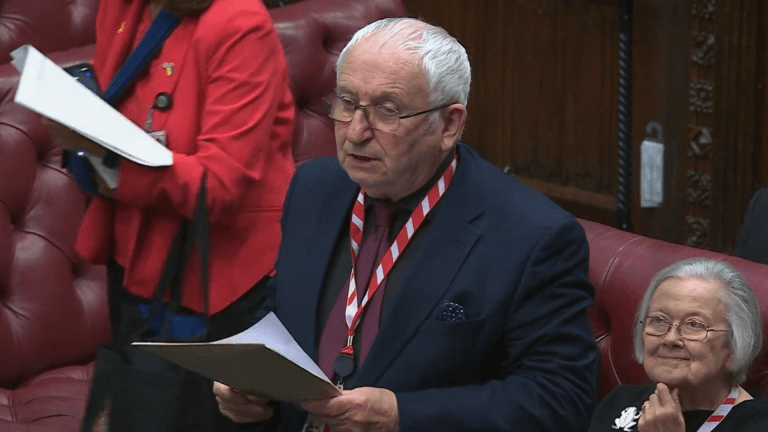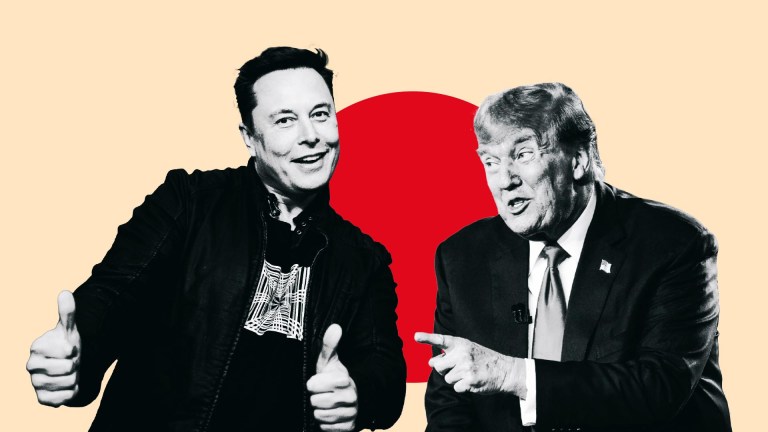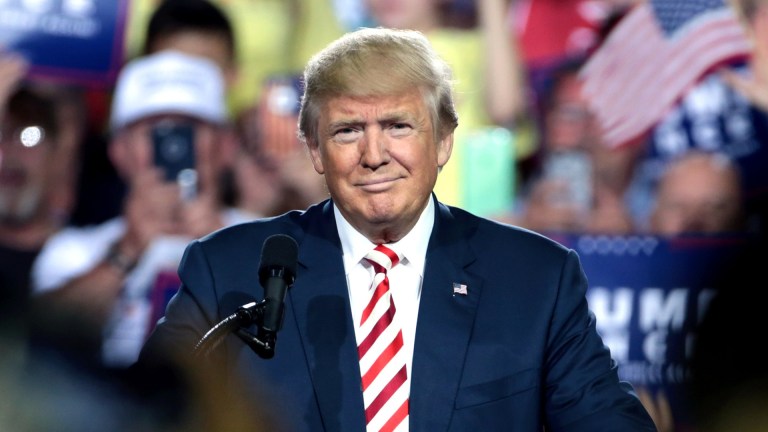While this sounds good at first, there’s a strong chance the policy will raise house prices as more people look to buy a house but it doesn’t increase the number of houses available to buy.
Still, “we want to turn generation rent into generation buy,” Sunak said.
Labour leader Keir Starmer was less impressed. The initial Help to Buy scheme introduced in 2013 “fueled a housing bubble, pushed prices up and made owning a home more difficult,” he said.
“If the government was serious about fixing the housing crisis it would have included a new generation of affordable houses,” Starmer said.
There was no mention of affordable housing or house building in Sunak’s budget speech, nor for the estimated 4.5 million families who rent. Looming rent arrears have been a constant danger for many renters, who are largely young and work in industries which have been impacted most seriously by the pandemic. Evictions enforced by bailiffs are currently banned, but only until the end of March.
Jon Sparkes, chief executive of homelessness charity Crisis, said: “It is very disappointing to see the housing support announced today is limited to home buyers. Hundreds of thousands of renters in arrears are facing eviction in a matter of weeks and must not be forgotten. We also desperately need more social housing, while a lack of further investment in housing benefit will push more people into poverty and put them at risk of homelessness.
The extension of stamp duty relief is another boon to home buyers, who won’t have to pay stamp duty on purchases over £500,000. In June that amount drops to £250,000 and further to £125,000 in September. But again, this would serve more to reinforce the existing housing market and kick the can down the road for a shock to the system when the stamp duty holiday ends.
What does the Budget mean for jobs?
To the relief of millions, the furlough scheme has been extended until the end of September, meaning workers will continue to be guaranteed 80 per cent of their salary even if they aren’t working. This could prove particularly vital for industries such as hospitality, retail and tourism which have been hit hard by the pandemic.
From July, employers will be expected to stump up for 10 per cent of their furloughed workers’ wages in July, rising to 20 per cent in August.
With restrictive measures expected to be all but lifted entirely by the end of June, it could still take some months for footfall to return to pre-pandemic levels, raising concerns for those businesses which rely on it to cover the extra costs.
This was, in some part, covered by the Chancellor. Business rates won’t need to be paid until June, and then will be discounted by two-thirds and capped at £2 million until the end of March 2022. While this will benefit employers before their workers, the hope is that it will, at least, keep businesses afloat and keep people in their jobs.
An extension of the cut to VAT for six months will also go some way towards keeping living costs down while supporting businesses, a measure which was welcomed by UKHospitality, an industry body for pubs, restaurants and other businesses across the country.
“The Chancellor has listened to the concerns of the hospitality sector,” said UKHospitality chief executive Katie Nicholls. “Details are yet to be pored over but it looks like crucial support will help businesses at a critical time.”
Sunak also announced a fourth round of grants for the self-employed. It works on a similar basis to furlough: people who apply for it can receive 80 per cent of their monthly self-employed earnings and this is capped at £7,500.
He also revealed a fifth grant, for May to September, determined by loss of earnings. People whose turnover has dropped by 30 per cent will get cash on the same terms as the fourth grant, whereas people whose turnover has dropped by less than 30 per cent will receive a 30 per cent of their turnover with a cap of just under £3,000.
Another 600,000 people would be able to access the grants as it became available for those who became self-employed in the 2019/20 tax year but campaign group ExcludedUK called the measures “too little, too late”.
“The majority of those who have been shut out of meaningful support thus far will continue to be excluded from the schemes and so many have been plunged into debt and poverty, often in the hardest hit industries and supply chains,” said Sonali Joshi, co-founder of ExcludedUK.
Caithness, Sutherland and Easter Ross MP Jamie Stone, chair of the All Party Parliamentary Group on Gaps in Support, warned the support will only help 150,000 people, citing Office for National Statistics self-employment figures.
What does the Budget mean for benefits?
The £20-a-week increase to Universal Credit which was introduced at the start of the pandemic has been extended for another six months, which could be a lifeline to many of the six million people who claim it.
Anti-poverty charities have long campaigned for the temporary increase to be made permanent, warning that removing it could mean the difference between some households being able to heat their homes and have dinner, or choose between the two.
Many charities were not happy that it was just a temporary extension. Helen Barnard, director of the Joseph Rowntree Foundation, said it was “unacceptable to cut the incomes of millions of families by £1040-a-year in six months’ time” and that the measures create “a perfect storm for the end of this year, with the main rate of unemployment support cut to its lowest level in real terms since 1990 just as furlough ends and job losses are expected to peak”.
“This makes no sense and will pull hundreds of thousands more people into poverty as we head into winter. extension comes to an end this winter,” she added.
Alistair Cromwell, acting chief executive of Citizens Advice, agreed, saying: “It will be a huge relief for people on Universal Credit to not face a cut to their benefits next month. But with a challenging recovery ahead of us, this is a stopgap.
“A six-month extension kicks the can down the road, only to leave millions facing a financial cliff edge in the autumn.”
While Sunak refused to make the £20-a-week uplift permanent, he also failed to include those on legacy benefits, including Employment and Support Allowance, Jobseeker’s Allowance and Income Support—and people who are sick or have a disability.
Ella Abraham, policy and campaigns officer at Z2K and co-chair of the Disability Benefit Consortium said that “the Chancellor’s silence on the issue of increasing legacy benefits by the same £20 per week increase that those on Universal Credit have seen at the Budget today was indefensible.”
She said: “It leaves the 1.9 million disabled people and others on very low incomes still facing impossible decisions like whether to pay for medicine or food.”
SNP Westminster Leader Ian Blackford MP was scathing in his response after Sunak’s speech, saying: “The Tories are threatening Scotland’s recovery with a return to austerity cuts, an extreme Brexit, and a Budget that completely failed to deliver the meaningful change and investment needed to build a fairer society.
“Covid has exposed the deep inequalities that exist under the broken Westminster system but the Tory Budget failed to address them. A decade of Westminster cuts have pushed 4.2million children into poverty but there were no measures to reverse the growing Tory child poverty crisis, no plan to raise statutory sick pay or introduce a Real Living Wage.”
While the extension of the £20 Universal Credit increase will prevent some from falling into hardship, Satbir Singh, chief executive of the Joint Council for the Welfare of Immigrants, criticised the Chancellor for failing to help migrants barred from accessing benefits.
The result will see “local authorities step in” to prevent many turning to rough sleeping, Singh warned.
“The Chancellor said that the government response to Covid-19 has been “fair” with the “poorest households benefiting the most” – he is simply wrong,” said Singh.
“No Recourse to Public Funds conditions – which deny most migrants any financial support from the Government – have long plunged people into debt and poverty. But throughout the pandemic they’ve caused devastation”
What does the Budget mean for the environment
The Chancellor paid lip service to environmental issues, promising that his policies would enable the UK to “build back greener” with a “real commitment to green growth” but experts were less enthusiastic.
Among the announcements were promises of a UK infrastructure bank to “finance the green industrial revolution” Prime Minister Boris Johnson promised back in November.
Sunak also promised new offshore wind farms and reiterated his pledge for a Sovereign Green Bond and a publicly available “green retail savings product” due in the summer which will work in tandem and “give all United Kingdom savers the chance to support green projects”.
The details of many of these projects have yet to be laid out in full, however, a point government critics were keen to pick up on. A freeze on fuel duty and the recent news of a new coal mine opening did little to bolster the Chancellor’s green credentials.
“This budget should have included a major green stimulus,” said Starmer. “Instead, the Government is trying to build a new coal mine, which we now learn may not even work for British Steel. If anything sums up this Government’s commitment to a green future it is building a coal mine we can’t even use.”
The Green Party said it was “deeply disappointed” by the “lost opportunity to put climate action at the heart of budget”.
Rebecca Newsom, head of politics at Greenpeace UK, added: “For all the talk of a green recovery, this budget suggests the chancellor has failed to clock the urgency of the climate emergency.
“A National Infrastructure Bank and Green Bonds could be steps forward, but without a guarantee they will provide sustained investment to decarbonise buildings, transport and industry, they are unlikely to do much to advance climate action.”
On the environment, as with many other big issues, the Chancellor promised big but appears to have left much of the action for the months to come. How these promises become reality and whether they have the desired effect will be the real test.
Liam Geraghty, Josh Sandiford and Natalie Chalk contributed reporting to this article.









